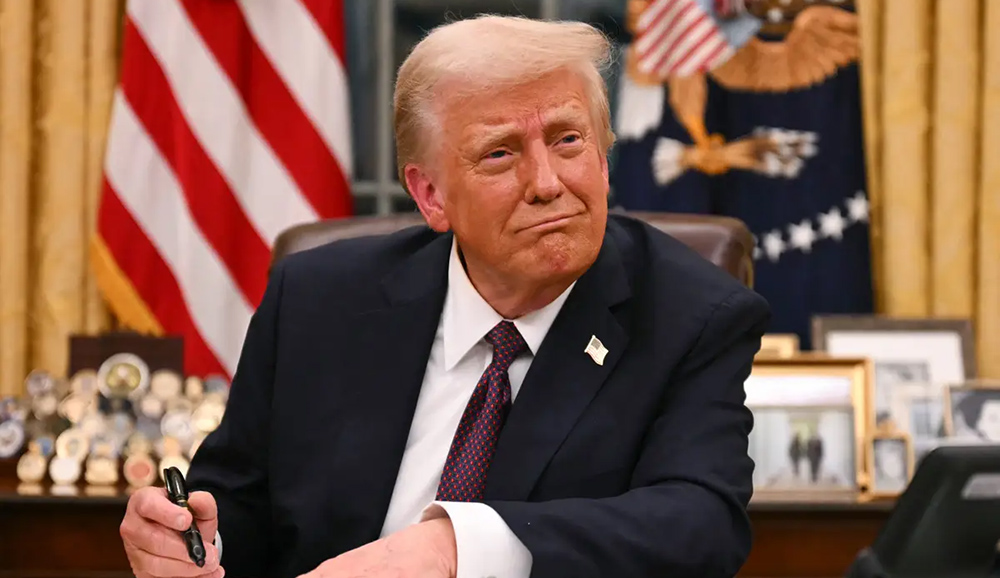
Kathmandu – In a bold new economic move, U.S. President Donald Trump has signed an order imposing sweeping new tariffs, including a 100% tax on all branded or patented medicines produced outside the United States.
The new measures are set to take effect from October 1, 2025, and are already raising serious concerns across the global pharmaceutical and manufacturing industries.
According to Trump, the new tax will not apply to medicines manufactured within the U.S., but will heavily penalize foreign-made branded drugs — a move he says is aimed at protecting American industry and national security.
The plan doesn’t stop at pharmaceuticals. Trump also announced 25% tariffs on heavy-duty trucks and 50% on kitchen and bathroom cabinets imported from abroad. Additionally, upholstered furniture will face a 30% tariff, citing what he calls “unfair flooding” of foreign goods into the U.S. market.
“We must defend our manufacturing sector for national security,” Trump wrote in a statement. “These products are pouring in from other countries. It’s not fair.”
India, a key supplier of both generic and branded pharmaceuticals to the U.S., is expected to be one of the hardest hit. The U.S. already imposes a 50% tariff on some Indian exports. India sends nearly $12.7 billion worth of medicines to America annually, the majority of them generic. Companies like Dr. Reddy’s, Lupin, and Sun Pharma also export branded drugs to the U.S., though that segment is much smaller.
Experts at the Global Trade Research Initiative (GTRI) warn that these new tariffs could raise costs for both branded and generic drugs in the U.S., and potentially push some Indian manufacturers out of the market altogether.
The impact could be significant. The U.S. relies heavily on Indian generics — nearly half of all generic drugs sold in America come from India. These lower-cost alternatives save U.S. consumers billions annually. A study found Indian generics helped save $219 billion in 2022 alone. If Indian firms are priced out, Americans could face higher drug prices and potential shortages, analysts say.
Meanwhile, Ireland, home to some of the world’s largest pharmaceutical plants, is also under Trump’s spotlight. Many major U.S.-based pharma giants like Johnson & Johnson, Pfizer, and Merck manufacture drugs in Ireland due to favorable tax policies. Trump has repeatedly criticized Ireland for “luring” American companies with low corporate tax rates, and U.S. Commerce Secretary Howard Lutnick even called Ireland’s business model a “scam.”
Merck’s blockbuster cancer drug Keytruda, for example, is produced near Dublin, while AbbVie makes Botox in Westport, and Eli Lilly manufactures weight-loss drugs in Kinsale to meet rising U.S. demand.
Trump’s move appears to be part of a broader effort to push U.S. companies to “reshore” manufacturing and reduce dependency on foreign imports — especially in critical sectors like health and transportation. But economists and industry insiders are warning of serious unintended consequences.
With no trade deal in place to buffer the shock, the new tariffs could not only strain diplomatic ties with key allies like India and Ireland, but also disrupt the availability and affordability of essential medicines in the U.S.
As the 2025 implementation date looms, all eyes will be on how pharmaceutical companies, international trade partners, and American consumers respond to what may become one of the most controversial trade decisions of the decade.
FACEBOOK COMMENTS